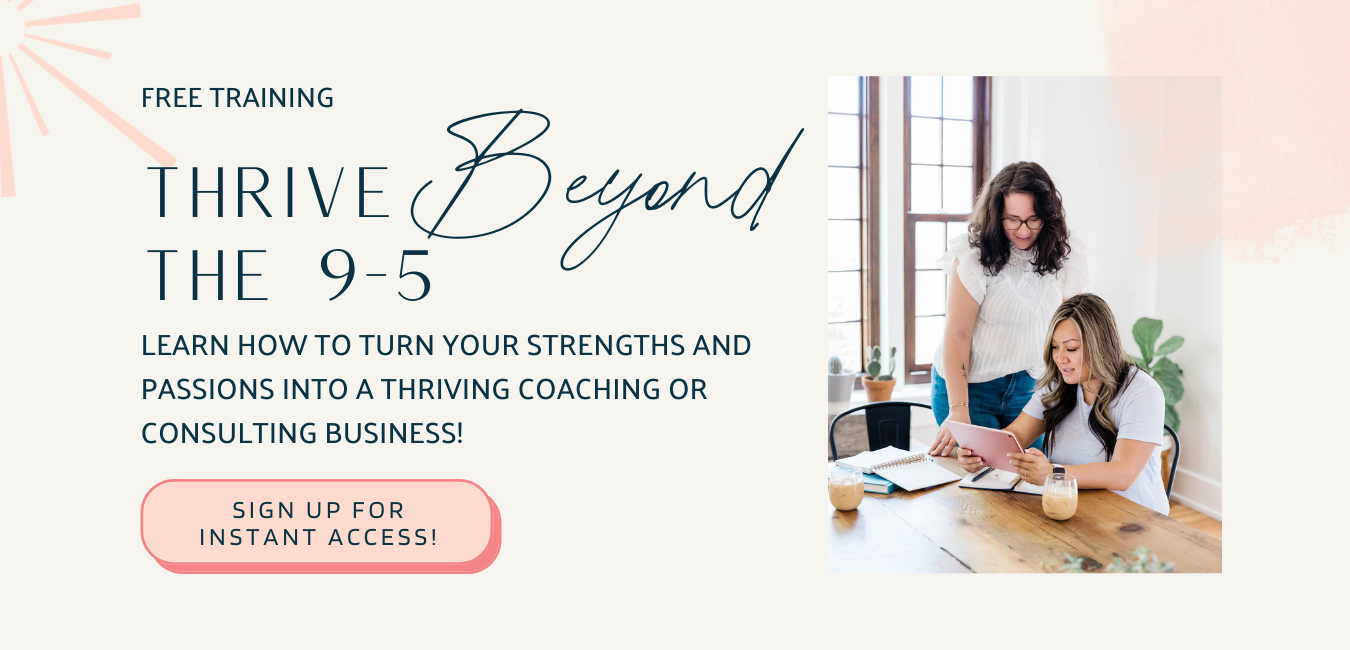How to Use Your Strengths to Stand Out in Your Business
“Who am I to start a business?”
“There are already thousands of coaches/consultants/business owners out there – what makes me so special?”
“Who would want to work with me?”
Do any of those questions seem familiar?
We often doubt our uniqueness, especially when we see so many people doing what we want to do.
You might also downplay your strengths, assuming everyone can do the same things you can do.
That couldn’t be farther from the truth!
Your strengths are part of your unique blueprint – they’re the skills, thoughts and behaviors that come most naturally to you.
And you can leverage this uniqueness to stand out in your business, attract your dream clients, and make the impact you long to make in the world.
Here’s how to use your strengths to stand out in your business:
Your strengths are more than what you’re good at
Your strengths are more than the tasks you’re good at. They’re the skills and experiences that strengthen you, the ones that keep you energized, and the ones that feel effortless to you. When you use your strengths every day, you’re more likely to feel productive, engaged and satisfied.
According to Gallup, people who use their strengths every day are six times more likely to be engaged on the job. And that goes for using your strengths in your own business, too.
That’s because your strengths are your most natural way of thinking, feeling and behaving. When you engage your strengths, tasks and situations seem easier, and you feel more in flow. You might spend hours on a certain activity, because you feel energized and in your element.
On the other hand, think back to a time when you had to do something you consider to be an area of weakness. It probably felt hard or challenging, or you had major resistance in even starting the task. Just like strengths are the things that strengthen you, weaknesses are the things that weaken you.
Instead of trying to “fix” your weaknesses or focusing on the tasks and skills that drain you, focus on building and honing your strengths. This way, you can identify the parts of your job or business that allow you to use your strengths each day, and the parts that don’t.
To identify your strengths, start with an assessment like Gallup’s StrengthsFinder, or a free test like HIGH5. Then, read through your report, highlighting the words and phrases that sound most like you. You can also give your report to someone close to you and ask them to tell you where they’ve seen you demonstrate those strengths.
The more you understand your strengths and how you use them in your daily life, the more you’ll be able to see how you can adapt your strengths to stand out in your business.
You can also use my free Feminine Leadership Styles Quiz to learn more about your unique leadership style and how you can apply that to your career or business, no matter what your role is now.
Related: How to Start a Business Using Your Strengths
Your strengths build your confidence
When you use your strengths every day, you’re using the skills and talents that come most naturally to you. In many cases, these strengths are so ingrained that you don’t even realize you’re using them. In fact many of us can take our strengths for granted, thinking that everyone can do the same things as easily as we can.
That might cause you to feel a sense of impostor syndrome when thinking about your strengths. You may downplay your strengths because you feel that they are not unique or special.
Remember: the chances of someone else having the same strengths as you in the same order as you is 1 in 33 million! Your strengths are unique, and they make you who you are.
Confidence is based on a deep trust in ourselves and our ability to be successful. The more you use your strengths, the more you can develop this deep trust in yourself.
Confidence also comes from taking action and seeing results in your effort. When you use your strengths, you see results. And when you see results, you start to build trust in your abilities, which builds sustainable confidence.
You can also develop confidence through external validation. While there are some schools of thought that tell you not to rely on external validation, I believe it’s a helpful place to start.
If you’re not sure about your strengths, or if you’re experiencing impostor syndrome around a particular strength, it can help to ask for feedback from someone you trust. Sometimes we need someone else to help us see ourselves for who we truly are.
When you get that external validation about your strengths, you can then begin to see patterns in your thoughts and behaviors. And those patterns can help you recognize when you’re using your strengths throughout your life.
For example, if someone confirmed that you’re really good at coming up with innovative solutions, you can apply that to your business – whether for you or your clients. You can think through the challenges you’re experiencing and identify new solutions that will work, or you can work with clients or customers in solving their problems through innovation.
And when you see that you’re solving your own problems and coming up with new ways of doing things, you build trust in yourself. You know you can handle anything that comes your way because you have the skills to navigate it, and you have the experiences to back it up.
This is how you build sustainable confidence. Applying your strengths over and over in a way that gives you the results you’re looking for.
Related: How to Really Own Your Strengths
Your strengths can attract the right clients
Speaking of helping your clients solve problems, you can use your strengths to attract the clients you most love working with. When you infuse yourself into your business, your ideal clients will resonate with you.
People need what you’re good at. Strengths are complementary, meaning what you’re good at is what someone else struggles with, and combining strengths can be beneficial for both parties. Whether your strengths are in executing tasks or creating a strategy, there’s someone who needs your services.
When I was a new manager working in a hospital, I needed to schedule a workshop with a group of senior leaders. If you’ve ever tried to schedule a meeting with even one executive, you know how difficult it can be, let alone a group of 10! I was struggling to find a time that worked for everyone – not to mention an open conference room – and I expressed my frustration to my department’s executive assistant, with whom I shared an office.
She told me she loves scheduling meetings like this because she sees it as a challenge. She loved the sense of satisfaction that came with aligning everyone’s schedule and a conference room so the leaders could accomplish their mission. She also liked that it gave her an opportunity to chat with the other assistants and build relationships across departments.
I love sharing this story, because it’s such a great lesson in complementary strengths. A task that I found daunting and frustrating was nearly effortless for my office mate. Just like we sometimes take our strengths for granted, thinking that anyone can do them, we can often assume that something we find challenging is challenging for everyone else.
Your potential clients feel the same way! There are challenges they’re frustrated with and problems they can’t solve on their own. They may feel that everyone struggles with it, so they just have to put up with it.
As a business owner, it’s your job to communicate how you can solve problems in a way that resonates with your ideal clients. You can use your strengths to show them how you can help them and take that burden off their shoulders.
Using your strengths also filters out the clients you don’t want to work with. Perhaps there are challenges you don’t want to solve or projects that weaken you. By communicating with your strengths, you can weed out the tasks and projects you don’t want to work on. More on that in the next section!
Your strengths help you manage your time and energy
Remember that your strengths are the skills and experiences that strengthen you, and your weaknesses are those that weaken you.
Understanding your strengths allows you to spend more time on the activities that fuel you and give you more energy and resilience, and less time on the tasks that drain you.
You can use this concept to delegate tasks to others or to set boundaries around your time and energy.
For example, if you’re great at executing tasks but need more help on creating a vision or getting clarity on next steps, you might consider hiring a business coach or marketing strategist. Or, if you’re great at developing a strategy for yourself but you struggle with putting the pieces into place, you could hire a virtual assistant or project manager to take on the smaller details of your business.
Remember, strengths are complementary! It’s important to find others who have skills that balance or harmonize yours, instead of hiring people just like you, which could add even more stress and overwhelm!
If you’re just starting out, you may not be able to hire someone right away. In that case, you can use your strengths to manage your weaknesses.
Think about a task or event that you consider a weakness. Something that drains you or is extremely challenging for you to accomplish. Then, go back to your strengths report. How could you use your top strengths to navigate this task or situation?
For example, if selling and sales calls are the tasks that drain you the most, but you have strengths in relationship-building, you can use those strengths to network and ask your friends and colleagues for word-of-mouth referrals.
This takes time and practice, but a great place to start is getting really clear on your strengths and what they mean to you. When you build this self-awareness around your strengths, you’ll know how you can leverage them to manage an area of weakness. That is, until you can pass that on to someone else!
The Takeaway
You can use your strengths to stand out in your business by attracting the right clients, managing your time and energy, and building the confidence you need to put yourself out there. Your strengths are more than what you’re good at, so by understanding and owning them, you can set yourself apart in your industry.
Take action now: Start by identifying your strengths using one of the strategies above. Then, spend time journaling about each of your top strengths and how you use them in your daily life. From there, you can begin to make connections to how you might use your strengths in your business or manage your weaknesses.
…
Sign up for the free masterclass, Thrive Beyond the 9-5, where you’ll learn how to turn your strengths and passions into a thriving business. You’ll learn how to leverage your strengths, skills, and career experience to start a business that aligns with who you are, so you can get paid for what you already know – at double (or triple!) your current rates. Click here to sign up for instant access to the free training!

